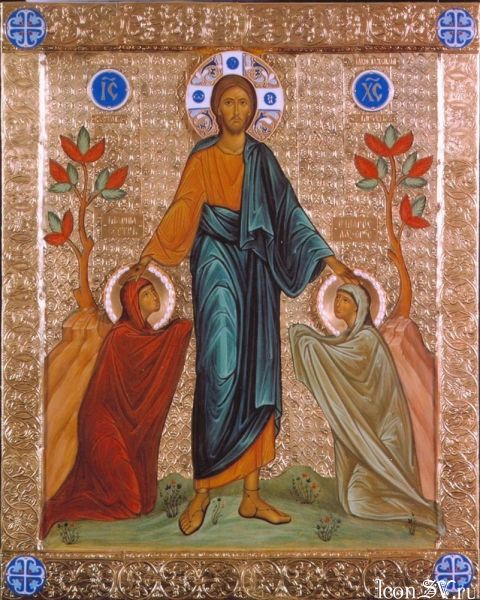Будущее Реформации как Реформация будущего


Тема Реформации как продолжающегося процесса соотносится с прошлым и будущим и не может быть понята вне этого соотнесения. Прошлое всегда таит и иногда открывает опыт Реформации, «как это было». Будущее несет вызов Реформации, вопросы «как быть не может?» и «как может быть?».
Так вопрос о Реформации того, что уже было и что есть сейчас, становится вопросом о том, что должно быть, что может быть? Причем это «может быть» не может быть само собой, но ставится в зависимость от нас – нашей веры, нашего понимания, нашей воли, нашего творчества.
Судьба Реформации решается через будущее. Если у Реформации есть будущее, то это будущее будет реформированным, измененным силой Реформации.
В свою очередь судьба мира решается через судьбу Реформации. Если у мира есть будущее, то это будущее будет будущим Реформации.
В один узел вяжутся темы Реформации, будущего, судьбы мира. «Реформаторский» взгляд видит будущее не как неумолимо приближающуюся новую действительность, но как проект, в котором мы участвует. Поэтому «реформаторы» задают в связи с будущим вопрос: как будущее, которое задано нам современными тенденциями и господствующей картиной мира, может быть преобразовано? Очевидно, что если будущее не изменить, то оно не наступит. Развитие по инерции ведет к смерти. Реформация – это спор веры («как должно быть») с действительностью («как оно есть»), протест против инерции истории, моделирование нового мира.
Реформаторский взгляд в будущее исполнен надежды. Христианам, ждущим скорой исторической развязки, суда и наказания для мира, стоит внимательнее читать Книгу пророка Ионы. Библия и библейская вера не знают понятий рока, неизбежности, предрешенного будущего. Мы можем изменить будущее «мирского града», если вместе с его жителями будем смиряться и каяться, как это сделали граждане Ниневии.
Если христиане примут тревожные знаки нашего времени как знамения неумолимого будущего, то нехристианский мир может оказаться реальностью. Если христиане примут расцерковление и обезбожение как вызовы своей вере всемогуществу Бога и любви к казалось бы обреченному миру, то гибель нашей цивилизации может оказаться лишь возможностью, которой нам удастся избежать.
В прошлом веке Ганс Йонас сформулировал «принцип ответственности» (причем ответственности «неутопической») нынешних поколений перед последующими, согласно которому, живущие сегодня должны распоряжаться возможностями истории так, чтобы не поставить под вопрос жизнь будущих поколений: «Ответственность есть признанная в качестве обязанности забота об ином существовании, которая в случае угрозы его ранимости становится «озабоченнностью». Однако в потенциальном виде страх заключается уже в изначальном вопросе, который можно представлять себе вырисовывающимся в начале всякой активной ответственности: «Что с ним произойдет, если я о нем не позабочусь?» Чем менее ясен ответ, тем ярче вырисовывается ответственность. И – чем дальше в будущее, т. е. чем удаленнее от собственного благополучия, и чем менее надежным оказывается то, за что страшишься, тем в большей степени, с большим усердием должны мобилизовываться ясновидение силы воображения и восприимчивость чувств» [1, c. 339]. Проще говоря, жить нужно так, чтобы будущее оставалось возможным, и такой способ жизни невозможен без пророческого воображения, без такого пророческого взгляда в будущее, который видит там жизнь и приносит надежду сюда.
По аналогии можно предложить «христианский принцип ответственности»: нужно так осмыслить опыт прошлого и распорядиться возможностями настоящего, чтобы будущее было определяемо христианским влиянием. Проще говоря, историю нужно понимать и проживать так, чтобы в будущем было место для христианства, или, в более сильной формулировке, чтобы будущее было более христианским, чем наше настоящее и прошлое.
При этом христианское видение будущего не должно быть ура-оптимистичным. Основным содержанием будущего будет не рай на земле, но Царство Божье. Рай на земле не удастся, поскольку он может быть лишь «там», не «здесь». Но Царство Божье может быть «на земле, как на небе». Царство Божье отличается от рая тем, что оно всеохватно, «здесь» и «там», «уже» и «потом». Царство нельзя приблизить, потому что оно уже наступило. Его нельзя расширить, потому что оно уже везде.
Христиане мало что могут сделать для Царства кроме того, чтобы стать его посланниками, глашатаями, представителями, а христианские территории сделать территориями Царства, островами надежды.
Христианская борьба за будущее ведется не для того, чтобы христианам стало лучше на земле, но для свидетельства современному миру и ради новых поколений.
Будущее не станет нашим будущим. Бороться за наше будущее – недостойная мотивация. Бороться нужно за будущее как таковое, чтобы оно могло наступить и принести надежду еще живущим и только рожденным.
В этом смысле Реформация не изменила сценарий будущего конца истории, но отодвинула его. Благодаря Реформации жизнь цивилизации продлилась на пятьсот лет. Без Реформации история могла бы уже закончиться.
Реформация будущего означает дерзновенное вопрошание Бога о продлении истории, о милости к грядущим поколениям.
Трудно сказать, может ли быть изменен ход истории. Но на основании библейских историй можно утверждать, что в истории возможны паузы, отсрочки. Долготерпения ради Бог может считать один день как один день, а может считать один день как тысячу лет. Возможно, Бог не пожалел бы жителей Ниневии, но Он не мог не обратить внимание на новорожденных, которые не отличали правой руки от левой.
Будущее апокалиптично – не в том распространенном и ложном смысле, что ему угрожает конец; а в том, что оно полностью выявит до поры сокрытое, прорастающее сковозь почву истории. Будущее выявит не только бездну человеческого греха и богоотступничества, но прежде всего – Царство Божье, которое присутствует внутри исторической реальности и дает ростки новой жизни.
При внимательном прочтении многих притч Иисуса, говорящих о событиях последнего времени, оказывается, что на самом деле, это притчи о Царстве. Главными событиями, основным содержанием будущего будут не глады и моры, не суды и войны, но растущее из глубины мира Царство.
Задача Реформации в отношении будущего – увидеть и провозглашать Царство Божье внутри мира, «посреди нас», в средоточии человеческой истории. Такая реформаторская работа внутри мира отвечает его запросу на искупление, примирение, преображение. Царство Божье – внутри истории, именно поэтому оправдана всякая деятельность, преображающая мир в свете Царства, в соответствии с его истиной и его ценностями. Царство Божье – основное содержание будущего, именно поэтому христианам надлежит быть апологетами будущего, а не хранителями прошлого.
Реформация – это пророческий взгляд в будущее. Тема Реформации – не столько для историка, сколько для пророка. Как говорит Патрик де Лобье, «Время может быть хроносом историка и кайросом пророка. Историк исходит из прошлого, пророк всматривается в будущее, и в этих двух измерениях протекает жизнь человека. Нам следует жить в настоящем, учась на прошлом и ожидая будущего, пусть и неведомого» [2, с. 553]. Теолог признает, что исторический идеал Церкви – «цивилизация любви» — скорее эсхатологична, чем исторична [2, с. 554]; и тем не менее перед Церковью стоит задача «Подготовить профанное христианство прямо здесь, в миру» [2, c. 555]. Слова о «профанном христианстве», «здесь, в миру» выражают нечто большее, чем мечту о небесном будущем, они содержат надежду на иное будущее в пределах истории, а не после ее конца.
Нам надлежит увидеть глазами «реалистов» будущие образы мира и христианства, которые предзаданы всем ходом развития и определены современными сдвигами. А затем нужно предвидеть глазами «реформаторов», предвосхитить дерзновенным усилием веры альтернативные образы будущего, оправданные и перспективные с точки зрения христианского богословия.
Будущее реалистов :
— все менее христианский мир;
— Реформация – способ продлить жизнь слабеющей Церкви;
— динамика развития богословия будет определяться ожесточенным противостоянием воинственных фундаменталистов и безразличных к своим принципам (пост)модернистов.
Будущее реформаторов:
— влиятельное христианское меньшинство;
— Реформация – шанс обновления всего мира;
— развитие богословия будет определяться по ту сторону исторических богословских споро – простейшими вопросами о сути Евангелия Христова, о природе Церкви и Царства.
Вскрытый конфликт двух видений мира, двух моделей будущего, двух путей развития вынуждает сформулировать вопросы, взывающие к христианской ответственности за будущее. Что нужно изменить в будущем, чтобы оно наступило? Что нужно изменить нам сегодня, чтобы стали возможны положительные, христиански оправданные образы будущего?
Отстаивая особость Церкви, реформаторам нужно показать универсальный характер Царства. После века экуменизма и экспериментов с христианским единством, стоит признать, что есть люди, которым нравится конфессионализм и они не смогут отказаться от «своей Церкви» ради более просторного дома. Но при этом вполне возможно жить внутри одного Царства, в котором помещаются разные дома и найдется место разным каноническим и не очень каноническим территориям.
Не отказывась от социальной ответственности, христианам нужно показать, что Церковь – нечто большее, чем социальный институт. Ни коем случае нельзя отказываться от того, что Церковь – часть общества, один из его институтов. Маргинализация – легкий, соблазнительно легкий путь. Стоит набраться мужества быть частью общества, каким бы оно богопротивным не представлялось. Но при этом Церковь как часть общества должна беречь в себе и являть другим то, чего в обществе нет – ту незримую, но ощутимую духовную силу, которую не заменит власть денег или воля к власти, логика обмена или природные влечения.
Реформаторы должны предложить миру богословские идеи, опережающие его (мира) развитие; идеи, способные скорректировать развитие в позитивном направлении. Например, мир не созрел к экономики щедрости, жертвы, дара. Но такая экономика возможна, и христиане могут эту возможность воплотить и продемонстрировать.
В мире политических делений, экономических войн и социальных противостояний христиане призваны быть миротворцами, предложить универсальную этику плюралистичному миру. Хотя прежде миротворчества и призывов к другим отказаться от эксклюзивизма христиане должны сами себе ответить на вопрос, способны ли отказаться от принципов исключительности и сепаратизма.
В эру информационного общества христианские теологи могут предложить логоцентричную картину мира, оправдав тем самым переход от индустриальной цивилизации к постиндустриальной, от традиционной к техногенной.
В ситуации постмодернистской исчерпанности, «конца» и «смерти» стоит заглянуть за последний предел и напомнить о «воскресении» — не только «духа» (религиозной сферы), но и «тела» — личности, общества, культуры.
Философская мысль прошла путь от досократиков к постмодернизму, но постпостмодернизм может быть помыслен только в рамках теологии воскресения, жизни после конца.
Эти и другие направления христианской мысли и социальной активности должны способствовать исполнению первого Божьего поручения (возделывать землю) и Великого поручения (научить все народы). Вдохновить на реформацию будущего может лишь проповедь Царства, никак не проповедь конца.
Таким образом, реформаторская работа в отношении будущего связана с реализацией христианской ответственности за мир как Божье Творение и будущие поколения людей. Христианским теологам, дерзнувшим стать апологетами будущего, придется ответить на вопросы об универсальном характере Царства, надсоциальной функции Церкви и христианских альтернативах цивилизационного развития. Если теологи Реформации надеются на ее продолжение в будущем, они должны быть способны его (будущее) предвидеть и ре-формировать уже сейчас.
Примечания
1. Йонас Г. Принцип відповідальності. У пошуках етики для технологічної цивілізації. Пер. з нім. — К.: Лібра, 2001. – 400 с.
2. Де Лобье П. Эсхатологическое измерение социального учения Церкви // Детство в христианской традиции и современной культуре / Сост. К.Б. Сигов. – ДУХ І ЛІТЕРА, 2012. – С 553-561.



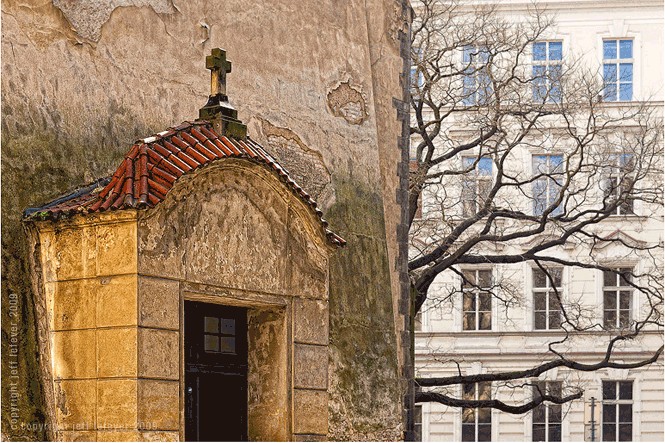

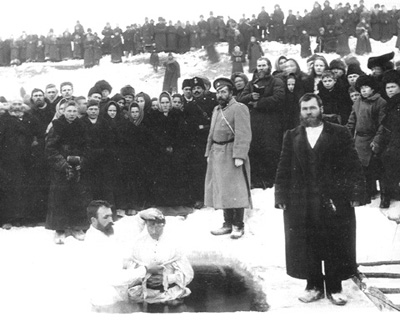
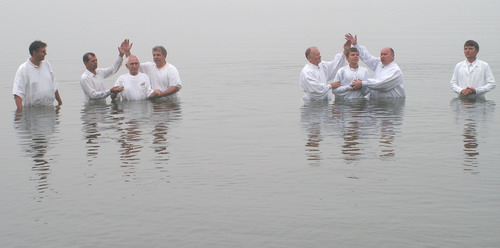



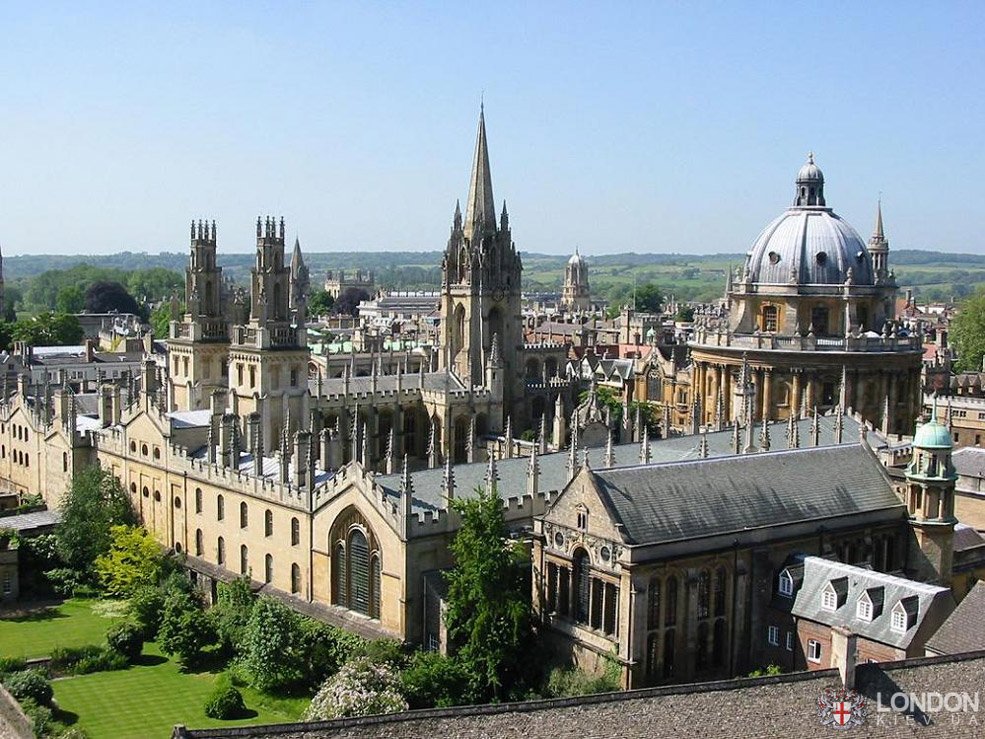
.jpg)

